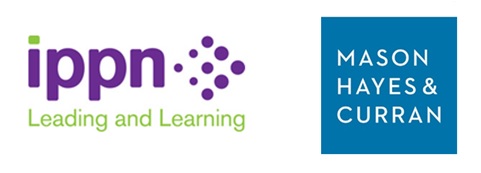Webinar: Underperformance of Primary School Staff
- Published: 12 November 2020

IPPN in association with Mason Hayes & Curran, conducted a survey of members in relation to the challenges of managing school staff. These challenges informed the basis of a webinar presented by Mason Hayes & Curran with commentary from IPPN.
Survey
The pre-webinar survey revealed that while the vast majority of school staff work to a very high standard, school leaders at some stage had to address underperformance amongst teachers, SNAs or ancillary staff. Only 15% of respondents felt confident in dealing with any underperformance issue. Coincidentally, the same proportion were subject to allegations of bullying from staff members.
Less than a third of principals reported being unfamiliar with basic employment law legislation affecting contracts of employment. A similar figure felt that they would be confident in dealing with an allegation of bullying made against them. 17% stated that they have dealt with disgruntled staff who requested a copy of their information on file.
Underperformance
Addressing underperformance, the question was raised as to whether the issues in any particular case involved either competency or conduct. Other questions included, who is responsible for addressing the issue, whether it involves teachers, SNAs, or ancillary staff and what process is to be followed.
Where the issues involve competency or conduct, it is important to differentiate between them, as there are different procedures in each case. However, many cases will have crossover elements, requiring a strategy for dealing with them. Unsurprisingly, much responsibility falls on the principal for the success or otherwise of any efforts made at finding a resolution.
A Personal Improvement Plan (PIP) should form part of any effort to improve performance of an individual, including the setting of fair and achievable targets, a fair opportunity to reach agreed standards, access to appropriate training or assistance, a timescale for reaching the targets and details of the consequences for failing to improve.
The webinar looked at five different case studies and how issues were resolved. These included cases of an underperforming teacher, an SNA refusing to complete certain tasks, a cleaner refusing to carry out instructions, a caretaker of advanced years with difficulties in completing tasks and a case where the principal was the subject of a complaint, following a staff member’s refusal to take a class allocated by the principal.
Senior members of the MHC team examined each case and provided a suggested response plan for case resolution, including where and when Medmark would form part of the process.
Managing underperformance
In summary, the advice issued to school leaders managing underperformance hinges on following a structured plan. The school leader must be clear, as to whether they have the authority to deal with a particular scenario. They must familiarise themselves with the disciplinary process. Every effort must be made to resolve the issue informally at the earliest possible stage. Where the informal route is not working, advice should be sought before embarking on the formal route, at which stage procedures should be followed without deviation.
Leaders are also encouraged to deal with the difficulties as early as possible. Failure to do so will invariably lead to a deterioration in the situation and an escalation of further conflict issues in the school community. Principals are also reminded that when they engage with procedures to deal with underperformance, they may also have to deal with counter allegations. This should not stop them doing the right thing. Remember that appropriate management is never bullying.



















































